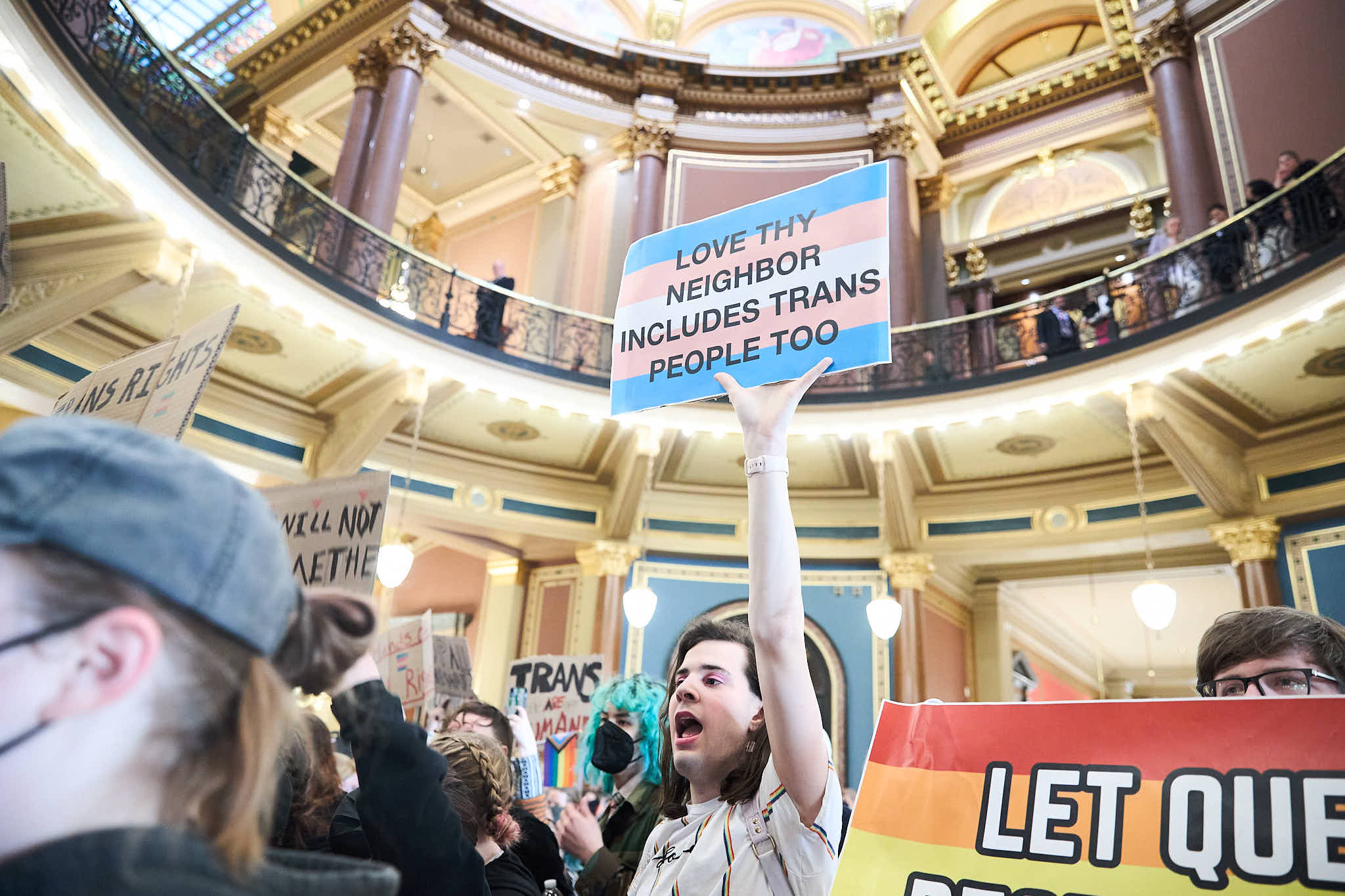Transgender or nonbinary Iowans under age 18 will soon have more help obtaining gender-affirming care out of state. In partnership with the LGBTQ advocacy group One Iowa, the North Carolina-based Campaign for Southern Equality is expanding its Trans Youth Emergency Project to Iowa, the groups announced on August 9.
Republican lawmakers and Governor Kim Reynolds banned gender-affirming care (such as puberty blockers, hormone treatments, and surgery) for Iowa minors last year. More than two dozen GOP-controlled states have enacted similar laws. The Campaign for Southern Equality estimates that 38 percent of transgender youth nationally and 93 percent of those in the South live in states that ban gender-affirming care.
A news release explained that the Trans Youth Emergency Project provides “1-on-1 custom patient navigation services and supports families of transgender youth with emergency grants of $500, renewable every six months, to help them travel out of state for care.” The project has distributed “more than $500,000 in direct emergency grants to 1,000 families and individuals” in fifteen states since March 2023. After the expansion, grants will be available to families in 25 states.
Iowa’s gender-affirming care ban, known as Senate File 538, prohibits health care providers from offering certain medications or treatments “if the practice is performed for the purpose of attempting to alter the appearance of, or affirm the minor’s perception of, the minor’s gender or sex, if that appearance or perception is inconsistent with the minor’s sex.” It does not ban parents from seeking such treatments for their children out of state, but doing so can be expensive and cumbersome.
Iowa families can contact the Trans Youth Emergency Project to seek a grant or assistance from a patient navigator through this page on the Campaign for Southern Equality’s website.
Max Mowitz of One Iowa testified against the gender-affirming care ban at Iowa House and Senate subcommittee meetings during the 2023 legislative session. They had a message for affected Iowans in the statement announcing the new partnership:
To the trans youth of Iowa: We believe you when you tell us who you are. We see you advocating for your right to receive life-saving, gender-affirming healthcare, and we support you. No matter what the politicians say or do, we will use every tool in our toolbox to ensure you can access the healthcare you need.
No one has challenged Iowa’s gender-affirming care ban in court. However, lawsuits in several other states are working their way through the federal courts. District and appeals court judges have reached different conclusions about whether such laws are unconstitutional or should be allowed to take effect.
In June, the U.S. Supreme Court agreed to hear the Biden administration’s challenge to Tennessee’s version of the law. A U.S. District Court had blocked that law, on the grounds that it violated parents’ “fundamental right to direct the medical care of their children,” as well as the Fourteenth Amendment’s equal protection guarantee. But the Sixth Circuit Court of Appeals reversed that decision and a similar ruling on Kentucky’s gender-affirming care ban.
The Supreme Court will likely hear oral arguments later this year, and should decide the case sometime during the first half of 2025. It appears that as the Justice Department requested, the high court will consider only the argument that such laws violate the Equal Protection clause—not the separate constitutional claim the transgender plaintiffs raised, regarding parental rights.
The Trans Youth Emergency Project created this interactive map showing the legal status of gender-affirming care across the country.

